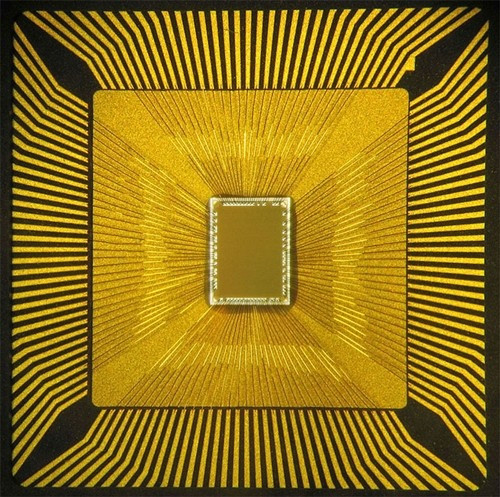CES 2012: IBM Stays Backstage but Executive Sees Major ‘Cloud’ Opportunities for Consumer Electronics Clients

If it were 1992, IBM might well have been one of the biggest exhibitors at the International Consumer Electronics Show in Las Vegas. There would have been a huge display of IBM PCs, software and printers, even though the printer unit had been sold the year before.
In 2012, IBM , the world's No. 2 computer services company, isn't even on the show floor in the crammed Las Vegas Convention Center. Instead, it has a virtual hideway on the second floor, above the crowds and action.
That doesn't mean IBM isn't interested in consumer electronics. Indeed, We're not in the forefront of dealing with the consumer, Bruce A. Anderson, general manager for the global electronics industry told International Business Times in a TV interview. We're more in the background, helping keep their products global.
While Lenovo Group of China is showing off the latest in what might have been the latest in IBM PCs (having acquired all of IBM's interest in the unit last year, six years after acquiring a majority stake), IBM is very much a player in the business, Anderson told IBTimes.
Chips from IBM Microelectronics, the in-house unit that analysts believe remains among the five largest global chipmakers, are busily supplying the leading electronic games makers like Nintendo and Microsoft, Anderson said. The reason is that the chips require highly engineered semiconductors that manage action, audio and color graphics easily and can respond to user motions.
They are miniaturized versions of the same chips that power the IBM Watson supercomputer that scored a victory over humans on Jeopardy last February, Anderson told IBTimes.
As well, IBM's Intel-compatible and Power chips are highly desirable for new electronics that respond to user commands for new products like voice-response TV.
Meanwhile, the Armonk, N.Y.-based technology giant sees great potential in the $1 trillion global consumer electronics sector, Anderson said.
First, IBM products are already in the back-end of major provider networks, verifying shipments, new orders and claims, he said. We're also often behind the scenes in the caller centers, he added. Companies use IBM's cloud for services they can't provide independently, Anderson said.
Next, IBM software, particularly for new Google Android applications, is a major growth sector, Anderson told IBTimes. IBM, until about 20 years ago, owned a minority stake in Intel, the world's biggest chipmaker, which announced a major push into smartphones here.
In, TV, IBM has long been highly active in supporting the broadcast industry, he said. Now with so-called smart home applications, IBM will be more involved with home security, residential energy control and consumer functions, he said.
Another promising aspect will be in home health care. While the IBM Watson supercomputer Is now advising medical patients at WellPoint in Indiana, at CES a Pittsburgh-based company, BodyMedia is showing wearable bands that use smartphones to gauge blood pressures and other checks to advise patients and their physicians.
Anderson declined to tell IBTimes how much IBM derived from consumer electronics from the nearly $100 billion in revenue reported for the nine-month period ended Sept. 30.
It's not one of the verticals we break out, the executive told IBTimes. But there's a lot going on.
IBM shares closed at $181.31 Tuesday, down 28 cents. The 52-week high is $194.90.
© Copyright IBTimes 2025. All rights reserved.






















